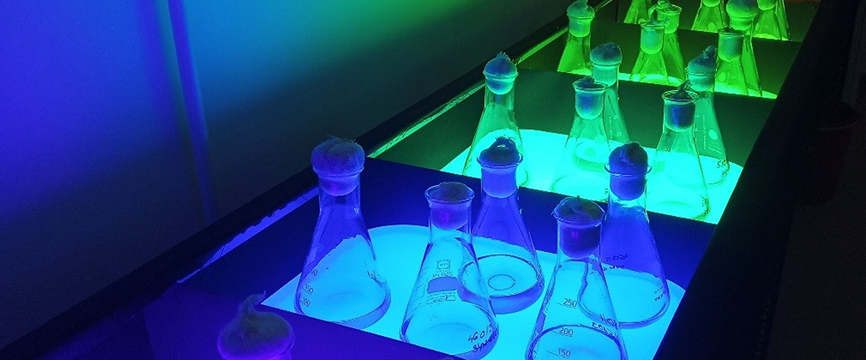
Basic data

Field of Operation
Place of implementation
Description
The National Multidisciplinary Laboratory for Climate Change conducts research and development in the field of technological, economic and social adaptation, in addition to studying the drivers of climate change and their impacts on natural and economic systems and society.Main research areas:
-
Climate change drivers and their impacts
-
Climate impacts of soot particles
-
Planktonic organisms and climate change
-
Impact of climate change on chemical communication in living waters
-
Biodiversity conservation research
-
Experimental investigation of changes in ecological systems
-
Clay sediments and bio-minerals
-
Biobatteries
Benefits to be expected from laboratory research:
- To identify hitherto unregulated sources of soot particles, in particular to estimate the extent of illegal municipal waste incineration, to determine the chemical and absorption properties of the particles, to quantify their energetic contribution to climate change, and to contribute to industrial combustion technology developments to minimise soot emissions.
- The combined effects of climate change-induced temperature extremes and anthropogenic stressors in freshwater ecosystems, focusing, among other things, on chemical communication in trophic networks of ecosystems.
- Monitoring the complex impacts of climate change.
- Clarifying the potential role of biofossils (shellfish shells, fish ear bones) as environmental and climate indicators.
- Bioelectrochemical systems developed today (microbial fuel cells (MFC), microbial electrolysis cells (MEC) and microbial electrosynthesis cell (MESCs) are capable of both storing and harvesting electricity. Their integrated application helps to develop a system analogous to batteries, which can even be used for carbon sequestration.
- Provision of analyses and development of decision-support solutions using data and systems science to identify the challenges and management options of climate change to assess the climate sensitivity of communities, improve the resilience of the environment and society, and improve the adaptive, transformative and learning capacities of individuals, communities, supply networks and communities.
- Development of the Water 4.0 research infrastructure system to address the expected water supply problems in the context of climate change, enabling the automation, remote access and operation of various water treatment tasks in both new and existing water systems.
Consortium leader
University of Pannonia
Consortium partners
- HUN-REN Centre for Ecological Research
- HUN-REN Balaton Limnological Research Institute
- Eötvös Loránd University
- University of Miskolc
- National Meteorological Service
- Semmelweis University
Utolsó módosítás: 18 June 2024
Related news
News and Press

News
A hazai kutatók nemzetközi beágyazottságát, kutatás-fejlesztési együttműködéseit nagymértékben elősegíti aktív kapcsolatuk a világ legjelentősebb kutatási infrastruktúráival (KI) és bekapcsolódásuk az ott folyó élvonalbeli kutatásokba. A legkorszerűbb KI-k olyan nagy költségű berendezések, létesítmények vagy adatbankok, amelyek építése, fejlesztése és működtetése meghaladja egy-egy ország gazdasági teljesítőképességét, így nemzetközi együttműködésben valósulnak meg.
18 02 2022

News
Budapest, Saturday, 9 April 2022 (MTI) - According to recent government decisions, a total of ten billion forints will be used in world-class research and development projects and the Cooperative Doctoral Programme, the Ministry for Innovation and Technology (ITM) told MTI on Saturday.
09 04 2022

News
Vice President Katalin Sebők spoke about the functioning, benefits and role of Regional Innovation Platforms in building the innovation ecosystem at the event showcasing university technologies.
28 03 2022




 ENG
ENG

 Back
Back




